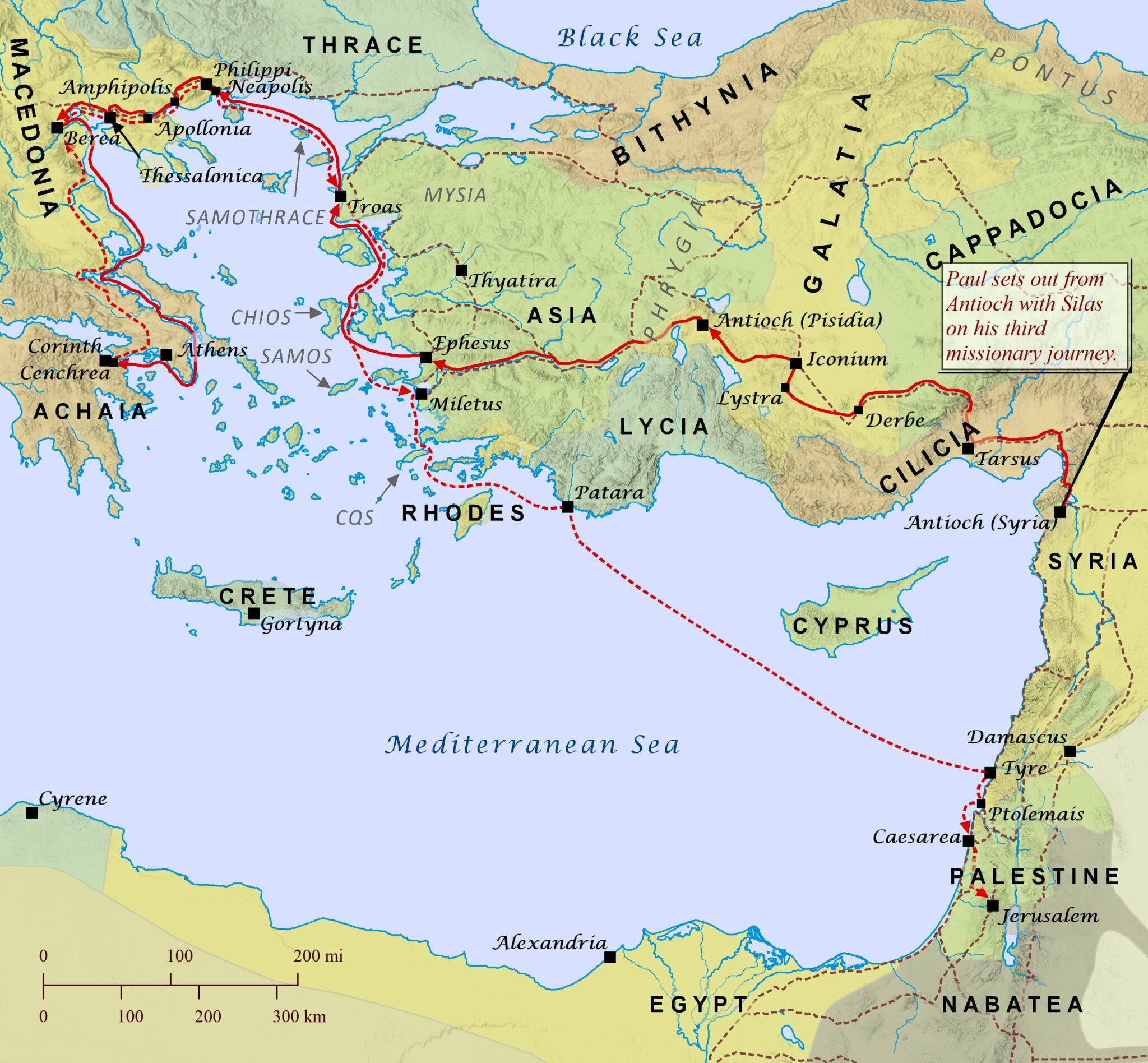In this life, we will experience suffering. Paul is encouraging believers to trust God through suffering because suffering will produce endurance, character, and hope.
This chapter begins to explore the meaning of life once we are redeemed by the grace of God through faith and stand in the presence of God’s infinite grace. Now what do we do? Now how do we live?
Paul answers by saying we ought to live in a way to bring glory to God as well as glory or praise from God (v 2). We have the opportunity for the amazing privilege of gaining not only God’s grace, which is given freely and without obligation, but also the reward of God’s approval. When we walk in obedience to God, we give God glory, as well as gain God’s approval. This gives us reason to exult in our tribulations (rejoice in sufferings), knowing that tribulation brings about perseverance (v 3).
Suffering for Jesus patiently brings about perseverance, which God rewards greatly. Considering the opportunity to demonstrate God’s glory by living a resurrected life, we can exult in our tribulations (Romans 6:4).
In light of the imminent return of Jesus in His glory to reward us according to our deeds, we rejoice in suffering for Jesus (Matthew 16:24–27). The Bible exhorts us to have the same mindset that Jesus had (Philippians 2:5). He learned obedience, even unto death on a cross (Philippians 2:8). Jesus suffered rejection from men. But He gained praise from God (Philippians 2:9).
We are exhorted to choose the same path that Jesus chose, to walk in obedience, trusting that God’s rewards will make the suffering worthwhile (Hebrews 11:6).
It is notable that the first thing Paul turns to when answering “Now what?” after we understand our redemption in Jesus, is to explain that exercising faith through suffering is a great opportunity, which is why we are to exult in our tribulations.
Suffering is something we should expect. But joy or happiness is something we can choose. When we walk in God’s Spirit, we have joy as a fruit of that choice (Galatians 5:22). But circumstances will bring suffering in this fallen world. However, regardless of our circumstances, the Spirit gives us the power to choose a mindset, a perspective that embraces tribulations as opportunities.
Paul continues the thought regarding how we should look at tribulations in this life. Exercising faith while suffering also shapes who we are as people. Consistent faithfulness through the difficult circumstances or tribulations of life brings about perseverance, and perseverance produces proven character (v 4).
So, what are we supposed to focus on in life once we stand in the grace of God, basking in God’s unconditional acceptance and our complete redemption (vv 1–2)? We are to focus on growing our character. When we receive the grace of God through faith in Jesus’s death and resurrection, we become a new creation in Christ. Who we are is a matter of new birth. Who we become is a matter of whom we obey.
Said another way, our position in Christ is accomplished and secured by the work of Christ on the cross, received by faith. He accepts us unconditionally as His when we believe on Jesus. But our condition depends on our choices. If we choose a mindset or perspective that is true, then we will see suffering as an opportunity for faithfulness, and an opportunity to gain great rewards through gaining character.
Who we become by faith in this life has an immense impact on our experience in this life—whether or not that experience brings us fulfillment. If we develop godly character we can gain much more from this life. God grants us new birth unconditionally. But the choices we make in how we live have everything to do with who we become and what we experience.
If we become all God intends for us to be, God promises rewards that go beyond our imagination (1 Corinthians 2:9). God will always accept us, because of our position in Christ, but how we live our life determines the extent of God’s approval of our deeds.
Paul continues his thought regarding what we should do in life once we stand in the grace of God (forgiven and redeemed by God’s grace). When we walk in faith it is almost inevitable that we will experience shame from the world. In fact, a substantial portion of suffering can take the form of rejection if we refuse to participate in the ways of the world. Living by faith produces proven character; and proven character, hope (v 5).
The love of God poured forth into our hearts through God’s Spirit counters the shame of the world. The world is very good at using shame to control and enslave us. But the power of God’s Spirit overcomes that shame and allows us to walk in freedom from the bondage of sin.
“Spirit” appears 28 times in Romans; this is the first mention of the Spirit being given to us as a gift when we believe in Jesus. Walking in the power of the Spirit will be a major theme of what life should look like after we believe. We received the indwelling Spirit as a gift when we believe. But God leaves it to us to choose whether to set aside our old man (our old life of following sin) and walk in His Spirit.
The hope we gain when we walk in faith is the opposite of shame. Hope does not disappoint (v 5).
We can be confident that walking in the power of the Spirit will bring us praise from God. This is our hope. On the other hand, if we continue in sin after being redeemed by Jesus’s blood and are standing in grace (v 1), we will most assuredly experience shame before Jesus. This hope versus shame is set forth by the Apostle Paul in 1 Corinthians:
“Each man’s work will become evident; for the day will show it because it is to be revealed with fire, and the fire itself will test the quality of each man’s work. If any man’s work which he has built on it remains, he will receive a reward. If any man’s work is burned up, he will suffer loss; but he himself will be saved, yet so as through fire.”
(1 Corinthians 3:13–15)
Our great hope is that anything we do as unto the Lord will be greatly rewarded, no matter what people might say (Colossians 3:23–24).
The Apostle Peter gives us a tangible example of the stinging rebuke of shame he experienced when he denied knowing Jesus. That did not in any way cause Jesus to reject Peter; God never rejects His children. Our hope can help us endure shame from the world because the love of God has been poured out within our hearts through the Holy Spirit who was given to us (v 5).
The Greek verb translated poured out is in the perfect tense, meaning that God’s love is poured out completely, with ongoing effects. We are fully loved by Him, and that love continues to cover us. Although God does discipline His children, it is an act of love, for God always has our best interest at heart (Hebrews 12:6; Revelation 3:19).
The Holy Spirit is now given to us as a helper (John 14:26). We can rely on the Holy Spirit to provide limitless power to do whatever God calls us to do. That God has given to us His Spirit is an act of the love of God. We now have the power to do anything God leads us to do (Philippians 4:13).
Biblical Text
3 And not only this, but we also exult in our tribulations, knowing that tribulation brings about perseverance, 4 and perseverance, proven character, and proven character, hope; 5 and hope does not disappoint, because the love of God has been poured out within our hearts through the Holy Spirit who was given to us.
Check out our other commentaries:
-
Jonah 2:2-6a meaning
The prophet Jonah describes his distressful experience in the waters. As he is on the verge of death, he cries out to the LORD for...... -
Luke 16:13 meaning
Jesus reminds His disciples that they can only have one master; it is impossible to serve two. He applies this truth to God and Money,...... -
Matthew 18:10 meaning
Jesus warns His disciples not to dismiss or mistreat one of these little ones because their angels are always telling the King of Heaven how...... -
Deuteronomy 16:16-17 meaning
The celebrations of the Feast of Unleavened Bread, the Feast of Weeks and the Feast of Booths every year at the central sanctuary are summarized....... -
Romans 4:18-21 meaning
By all human standards, it was impossible for Abraham and Sarah to have a child, but Abraham believed God’s promise anyway. Even though Abraham did......



